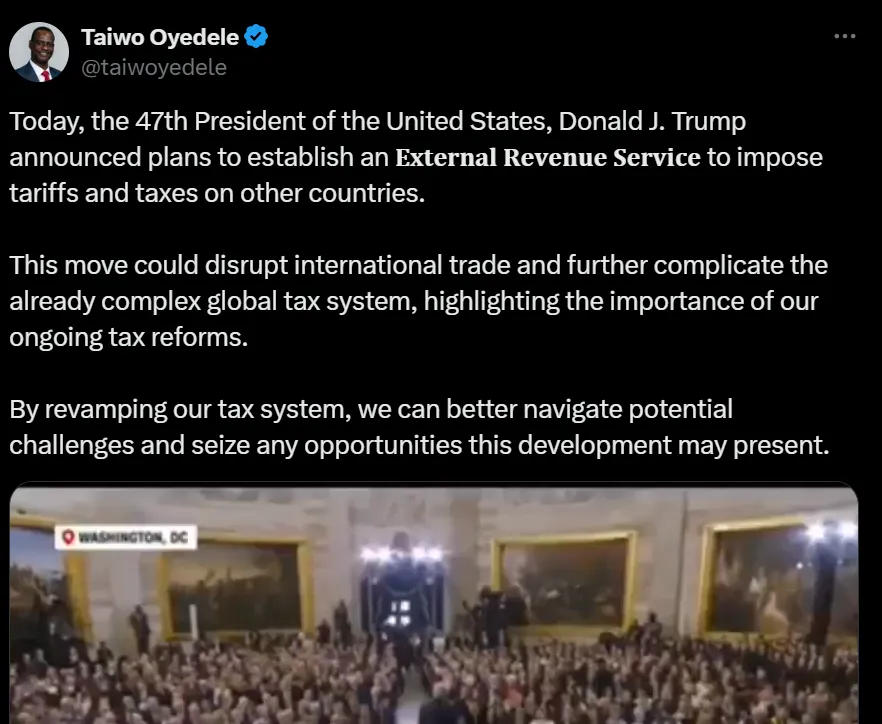
Trump’s External Revenue Strategies: A Threat to International Trade Stability?
President Donald Trump’s recent proposal to establish an External Revenue Service (ERS) aimed at collecting tariffs and taxes from foreign nations has raised significant concerns among global trade experts. Taiwo Oyedele, Chairman of Nigeria’s Presidential Committee on Fiscal Policy and Tax Reforms, cautioned that this policy could disrupt international trade.
The ERS is intended to enforce tariffs on foreign imports, with the goal of reducing the U.S. trade deficit and encouraging domestic manufacturing. While the administration anticipates that these measures will bolster the U.S. economy, critics argue that such unilateral actions may lead to retaliatory tariffs, escalating trade tensions, and potentially harming global supply chains.
Oyedele’s concerns reflect broader apprehensions within the international community regarding the potential for increased protectionism and its impact on global economic stability. The establishment of the ERS signifies a shift in U.S. trade policy, moving towards a more aggressive stance on foreign trade practices.
As the situation develops, stakeholders worldwide are closely monitoring the implications of this policy change, considering both the immediate effects and the long-term consequences for international trade relations.
